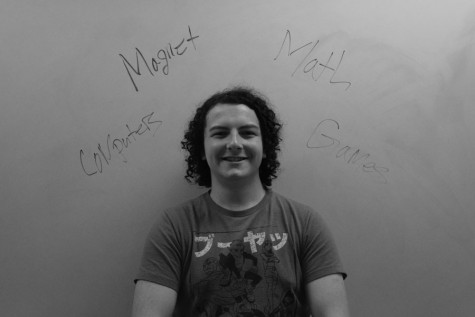Level up
eSports rise to fame.
Many people grow up hearing they will not make a living playing video games. But for the dedicated, skilled gamers, that’s not true. These gamers are eSports professionals who play video games at a tournament setting for a living. Just like traditional sports, eSports require practice, discipline and a competitive drive. Some people think of eSports as nothing more than a few nerds playing games. In reality there are large events with thousands of people who attend to watch the professionals compete. These games range from first-person shooters (FPS), such as Call of Duty or Counter-Strike: Global Offense, to real-time strategy (RTS) games like StarCraft 2, to multiplayer online battle arenas (MOBA), which is defined by League of Legends or DotA 2.
A casual gamer might get home from school and jump onto the computer to play an hour or two of their favorite game with their friends. But for professional players, it is much more. These players practice upwards of 12 hours a day and some even live in team houses, also known as gaming houses. In an article on LiquidDota, a gaming forum, it was reported that most teams even have coaches who will help analyze plays and set schedules for everything from exercise to eating.
Although a fairly recent phenomenon, it lives in the hearts of millions. The first real eSports competition was the Microsoft-sponsored Red Annihilation tournament at the E3 expo of June 1997, with 40,000 live attendees and a large online audience. The game was Quake, a fast paced first-person shooter. By searching the Red Annihilation tournament on Google, an IGN article tells us that the first phase began with over 2,000 participants across the United States playing on the Mplayer network competing in one-on-one matches. The bracket dwindled to the event finals, where the top players were flown to the E3 expo in Atlanta, Georgia to compete live. Two finalists battled for the grand prize of, John Carmack’s Ferrari 328 GTS Cabriolet.
While the Red Annihilation tournament was happening in the United States, eSports was becoming extremely popular overseas, particularly in Korea. In 2000, the South Korean Ministry of Culture, Sports and Tourism approved the creation of the Korean eSports association, KeSPA. KeSPA’s goal is to popularize, organize and promote eSports in Korea. That same year, the World Cyber Games Challenge was held in Seoul, bringing teams from seventeen countries to compete in four different eSport titles. This included real time strategy game Starcraft, which became the most popular eSports title in the world until being eclipsed by League of Legends in 2012.
League of Legends is a multiplayer online battle arena, pitting five player teams against each other in a game of teamwork, strategy and mechanical execution. Riot Games developed the title, and it sponsors the North American and European League of Legends Championship Series (LCS), as well as the World Championships. The 2013 World Championships was hosted in Los Angeles, California at the Staples Center. Forbes statistics state It drew a live crowd of roughly 11,000 and an online viewership of eight million. In October of 2014, the League of Legends World Championship was held in Seoul, Korea where the crowd was 40,000. Both Championships had prize pools larger than two million dollars.
Professional players of popular eSports titles broadcast their gameplay online using the website Twitch.tv, and gain upwards of 20,000 viewers on a weekday night. Forbes states that League of Legends has a massive 7.5 million concurrent players and DotA 2 has 750,000.
These professional teams and players have inspired millions. Many schools and students are beginning to start their own eSports clubs in order to be a part of the action. These clubs are of varying skill and size with many clubs playing different competitive games. One OHS student, Noah Hanson, thought he would try his hand at forming an OHS eSports club. Hanson wanted a place for students to go after school to talk about and play the competitive games they are already involved in. The Owatonna eSports club meets on Wednesdays after school from 2:30pm-3:30pm in room G-414. Hanson hopes the club will visit colleges and observe other clubs. He wants to invite nearby high schools to get involved too, in order to compete against them. “eSports is a new generation of sporting events and entertainment,” said Hanson. His passion for gaming expands further than his own improvement. He looks for the members of the club to grow and improve together.

Growing up Michael was a quiet kid. Now he is a senior at OHS and still keeps to himself. Rather than going out and partying, he likes to sit on his computer...

